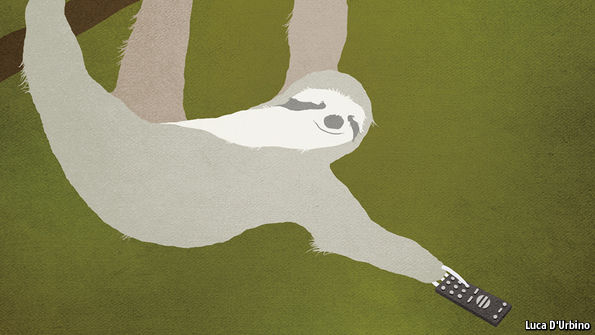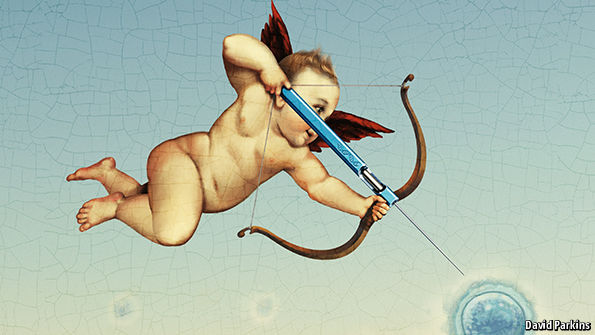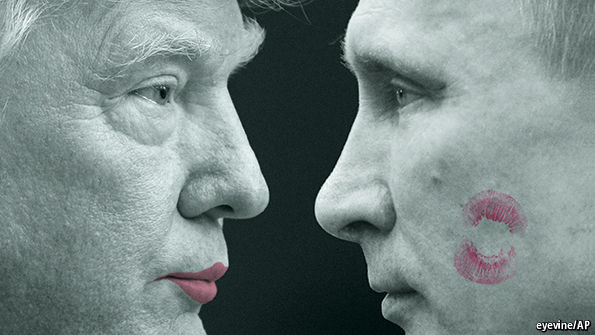Half-brotherly love
Why Kim Jong Un’s brother was murdered
from The Economist

Kim Jong Nam was attacked by two women assumed to be North Korean agents a Malaysian airport. He is said to have died on his way to hospital
Rumours suggest that Mr Kim was poisoned. Six people might have been involved in the attack
The 45-year-old Mr Kim had once been Kim Jong Il’s favourite son. Before each birthday, diplomats would be sent on a month-long present hunt
But it was Kim Jong Il’s third son, Kim Jong Un, who succeeded their father in 2011. Kim Jong Nam was not visible at his father’s funeral
Kim Jong Un has consolidated power by executing about 140 senior officials. As a political irrelevance, Mr Nam had seemed likely to survive
Some says Jong Nam had conspired against his brother with executed Jang Song Thaek whom Jong Nam had been close to in his school days
Jong Nam might be involved in financial dealings like money laundering through Macau’s casinos or simply irritate Jong Un by criticising him
Jong Nam was thought to be under the protection of China which had had good relations with Jang and would have seen Nam as useful leverage
North Korea allegedly had been trying to kill Jong Nam for some time. But there is no hint his murder is a sign of turmoil within the regime
| 2017/02/25
| Politics
|
Winner takes all: A slow-motion revolution
Traditional TV’s surprising staying power
from The Economist

You have to wait until a certain hour on a certain day on a certain channel to watch TV. TV is terrifyingly antiquated
People will be able to pick any show at any time from just a few favourite platforms like Netflix or Amazon as well as Facebook and Snapchat
But all this is happening in slow motion, because both distributors and networks have a deeply vested interest in retaining it
Broadcast television is being eroded: 1) billions of people are now watching free videos on SNS supported by targeted advertising
2) Subscription services are amassing big user bases with a low subscription & investing heavily in content, which is strangling a cable TV
In the late C20, the number of channels of cable TV increased as media companies discovered serving niche audiences could generate revenues
Yet as media companies kept adding channels, pay TV hit the limit of the number of channels an average consumer can see in a week: 17
In US the typical pay-TV bill has doubled in a decade, to more than $100 a month, which created an opportunity for internet video providers
US’s viewing of broadcast & cable TV by all age groups fell by 11% & aged 12-24 40% in past 6 yrs. The market penetration: 90% (2010) to 80%
Cord-cutting is beginning in developed markets like US and will damage the cabe TV companies enjoying gross profit margins of 30-60%
Somewhat ironically, TV is now at it’s best because networks (e.g. HBO and FX) and streaming services are competing for subscribers
This competition has given viewers shows that cost $10m an episode and has caused Netflix to pay huge for a third season of Black Mirror
Not everyone will be a winner. Last year 450 original shows were available on US’s TV, more than twice as many as 6 yrs earlier
The $109bn acquisition of Tme Warner would give AT&T vertical integration to protect it if and when the current pay-TV system crumbles
Sports programmes, the last stronghold of the pay-TV oligopoly, accounted for 93 of the 100 broadcasts in 2015, compared with 14 in 2005
Advertising rates in general have been flat or declining in most of the industry, but spending on ads for sports has risen by 50% 2005-2015
The cost of sports rights has been rising. Annually, ESPN is paying $5.5bnr for NFL. ESPN and TNT are paying $24bn for NBA
Investors are asking how long this can go on. ESPN lost millions of subscribers in recent years. The escalating fees will put them off more
For mobile devices streaming rights are sold separately. Telecom companies are likely to offer increasingly large fees to stream sports
The existing business model remains too lucrative to abandon. But eventually fans will watch sports on screens in alternative realities.
| 2017/02/25
| Business, Summary
|
Reproductive technologies
Gene editing, clones and the science of making babies
from The Economist

20 yrs ago, Dolly the sheep triggered much fuss about nothing. Now, technological advances are making cloning humans more feasible
Some fear of people’s control over reproduction. Others argue for the right to alleviate suffering from childlessness or genetic diseases
Last year, new reproductive practice was added: mitochondrial transplantation / three-parent children
They bring the possibility of choosing which embryo will live or die, which can seem disgusting. But disgust is not a good guide to policy
Disgust often goes along with dystopian alarm. Reproductive science’s progress is so fast that people worry about the outcome
Mitochondrial transplants are intended to avoid dangerous diseases and will be familiar like other reproductive practices e.g. IVF and AID
Researchers should not be allowed to experiment on human fetuses, test within the law’s bounds and value people’s happiness and health
Growing sperm and eggs from body cells allows gay couples to have children but should be banned for one parent because of the child’s health
Gene editing will eliminate genetic diseases. But breeding babies with new traits and cloning other people raises questions
Should bereaved parents be able to clone a lost child? Should the wealthy be able to pay for their children to be intelligent and diligent?
Opinions change as people get used to. We need to protect the interests of the unborn. The risk is to hold back and leave people to suffer
| 2017/02/21
| Science & Technology, Summary
|
Fairway friends
Japan’s prime minister meets Donald Trump—again
from The Economist

Last November, Mr Abe jumped on a plane and went to meet Mr Trump. It was Mr Trump’s first meeting with a foreign leader after his election
This time, he will bring a plan to create jobs in US by building rail links, decommissioning nuclear power plants, using JP’s pension fund
Mr Abe wants to try to bag a bilateral deal with Mr Trump who has made positive noises, which could salvage some of the substance of TPP
The explicit return for JP’s investment will be US’s commitment to defend JP includes the disputed Senkaku islands
Abe is hoping to bond with Trump over a golf like his grandfather who played golf with Eisenhower 3 years before they signed security treaty
Cosying up to a leader many Japanese distrust is a political risk for Mr Abe and will also further alienate China
| 2017/02/16
| Politics
|
Russia and America
Donald Trump seeks a grand bargain with Vladimir Putin
from The Economist

Mr Trump appears to want to forge a new strategic alignment with Russia. Will he be the third American president to be outfoxed by Mr Putin?
As Mr Trump’s ambassador to the UN offered condemnation of Russia’s actions in Ukraine, he was protective toward Mr Putin
Mr Trump is miscalculating not only Russian power and interests but also the value of what America might have to give up in return
Mr Trump seems to think US would team up with Mr Putin to destroy IS and curb Chinese expansion
Russian hacking may have helped Trump at the polls, but that does not mean he can trust Putin. Russia’s interests and US’s are worlds apart
Mr Putin’s price for working with US could be to secure RU military presence in the ME. But US and RU forces cannot easily fight together
RU is not about to confront Iran which is a promising market for RU exports and a neighbour to work together to manage the ME
RU is far weaker than China, with a declining economy and population and a smaller army
Putin’s 3 wishes: the lifting of Western sanctions; the recognition of his seizure of Ukrainian territory; US’s connivance in weakening NATO
Mr Trump seems not to realise scrapping US’s anti-missile defences in Europe and halting NATO enlargement would be gigantic concessions
Mr Trump, betrayed and angered, will end up with a dangerous and destabilising quarrel with Mr Putin
Mr Trump should improve US’s relations with RU like arms control with Congressional Republicans, Mr Mattis or Mr Tillerson
| 2017/02/16
| Politics
|





